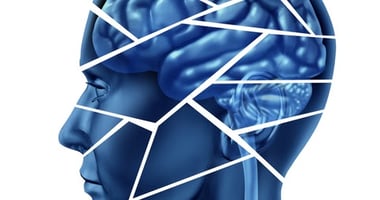Traumatic brain injury (TBI) during early childhood is known to increase the risk of developing...
ADHD May Develop in Children Following Severe TBI

Children who experience a severe traumatic brain injury (TBI) appear to be at greater risk of developing attention-deficit/hyperactivity disorder (ADHD) than children who experience less severe injuries, reports a meta-analysis published today in JAMA Pediatrics. Mild or moderate TBI was not associated with any subsequent risk of ADHD.
“Given the clinical significance of ADHD in pediatric practices and parental concerns about the serious effects of mild TBI/concussion stimulated by media reports, information about the risk for ADHD following TBI may be useful in managing children with TBI and counseling their parents,” wrote Robert F. Asarnow, Ph.D., of the University of California, Los Angeles, and colleagues.
The researchers compiled data from 24 studies that assessed the prevalence of ADHD before and after a TBI in children. The studies included 12,374 children aged 4 to 18 who experienced TBI of various severities and 43,491 controls with no TBI history. Sixteen percent of the children who experienced TBI of any severity had preexisting ADHD and were excluded from most post-injury analyses. TBI severity was measured with the Glascow Coma Scale (scores of 13-15 for mild, 9-12 for moderate, and 3-8 for severe TBI). The authors assessed the risk of post-injury ADHD in both the short (1 year or less) and long (>1 year) term.
They found that children who had had a severe TBI and no ADHD prior to their injury were more likely to be diagnosed with ADHD both in the short and long term compared with children without TBI, including children who had experienced other injuries (like broken limbs). Overall, 18.8% of children who had a severe TBI were diagnosed with ADHD within one year, compared with 4.9% of children with a mild TBI and 10.3% of children with moderate TBI; 35.5% of children with severe TBI had ADHD more than a year after their injury.
“When confronted with claims that a mild TBI causes persistent, severe ADHD symptoms, clinicians should carefully review how the child was functioning before the TBI before concluding that the child developed ADHD as a result of a TBI,” they wrote. “There may be psychosocial and medical issues that antedated the TBI that need to be addressed to adequately treat a child’s ADHD symptoms.”
To read more on this topic, see the Psychiatric News article “Experts Weigh Risks, Benefits of Sports for Youth With ADHD.”
(Image: iStock/KatarzynaBialasiewicz)






